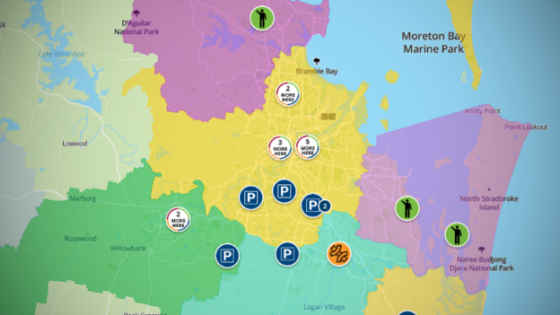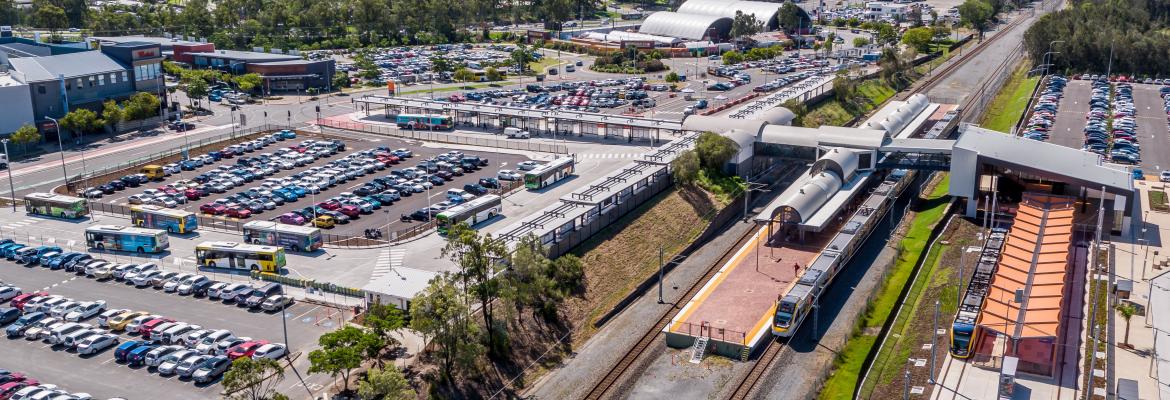
One of our main goals is to improve your public transport experience. To do this, we're upgrading the network, building new infrastructure and changing the way we operate.
Infrastructure project map
We're constantly improving our network to make it easier for you to use public transport.
Use our interactive map to discover the public transport infrastructure improvement projects currently underway across our network. This includes updates to existing infrastructure and completely new projects.
Projects will remain on the map for up to 12 months after completion.
Visit the Department of Transport and Main Roads website for projects outside our network.
Other current projects
The Smart Ticketing project is introducing new ways to pay for travel, making it easier to plan, catch and pay for public transport.
The Queensland Government has released SEQ Rail Connect, a blueprint for how we will prepare South East Queensland's rail network for the future.
To find out more visit the SEQ Rail Connect page.
On 30 June 2025, Brisbane City Council introduced two new Brisbane Metro lines, route M1 and M2, unlocking capacity to get more people to where they want to go, at the times they want to travel.
At the same time, we introduced a new bus network for Brisbane to integrate these new services into our network and:
- reduce bottlenecks and congestion by better utilising our busways and simplifying where services enter and exit Brisbane City, to deliver greater service reliability
- increase connections with other public transport modes, including Cross River Rail, to create more interchange opportunities and travel options.
More information about the Brisbane Metro project is available on Council's website.
If you have a question or would like to speak to a member of the project team, please call the Brisbane Metro project team on 1800 692 333 or email metro@brisbane.qld.gov.au.
E-paper, also known as electronic paper, is an innovative technology that mimics the appearance of ordinary ink on paper. These compact units will offer real-time bus departure information on an easy-to-read screen, as well as audible timetable buttons. The e-paper units are 100% solar powered making them a sustainable and efficient alternative to paper-based timetables.
The benefits of e-paper technology include:
- Bus departure times are easy to read.
- Stop info can be communicated in real-time.
- Disruption info can be clearly displayed.
- The stops use solar power and reduce the need for paper and printing.
Starting November 2024, around 300 bus stops across our network will be replaced with e-paper digital displays.
The Department of Transport and Main Roads (TMR) has released the Queensland Transport Strategy (QTS).
To find out more visit the Queensland Transport Strategy page.
The National Disability Insurance Scheme (NDIS) will transform the way Queenslanders with disability are supported and change the way disability services are funded and delivered.
The Department of Transport and Main Roads will continue to deliver services and programs to all of our clients and members while the NDIS is introduced in Queensland.
The NDIS will result in changes to the administration of some of the department's programs for people with disability who become NDIS participants.
Accessibility projects
Small blue metal plates, featuring Braille, tactile and QR code bus stop numbers, have been added to select inner-city bus stops and bus stations.
The plates are fixed to the sides of the blade style bus stops and display the bus stop number in Braille, to assist customers with vision impairment identify the stop. Above the Braille the stop number is also displayed in white high contrast tactile text and below the braille the same information is available through use of a QR code.
The new Braille, tactile and QR code stop numbers have been introduced to assist customers with vision impairment identify bus stops where there are a high number of stops in proximity. This has mainly occurred in inner city areas and large bus stations. In 2020-21, we're looking at extending Braille, tactile and QR codes at bus stops further outside inner city locations, including some regional areas.
